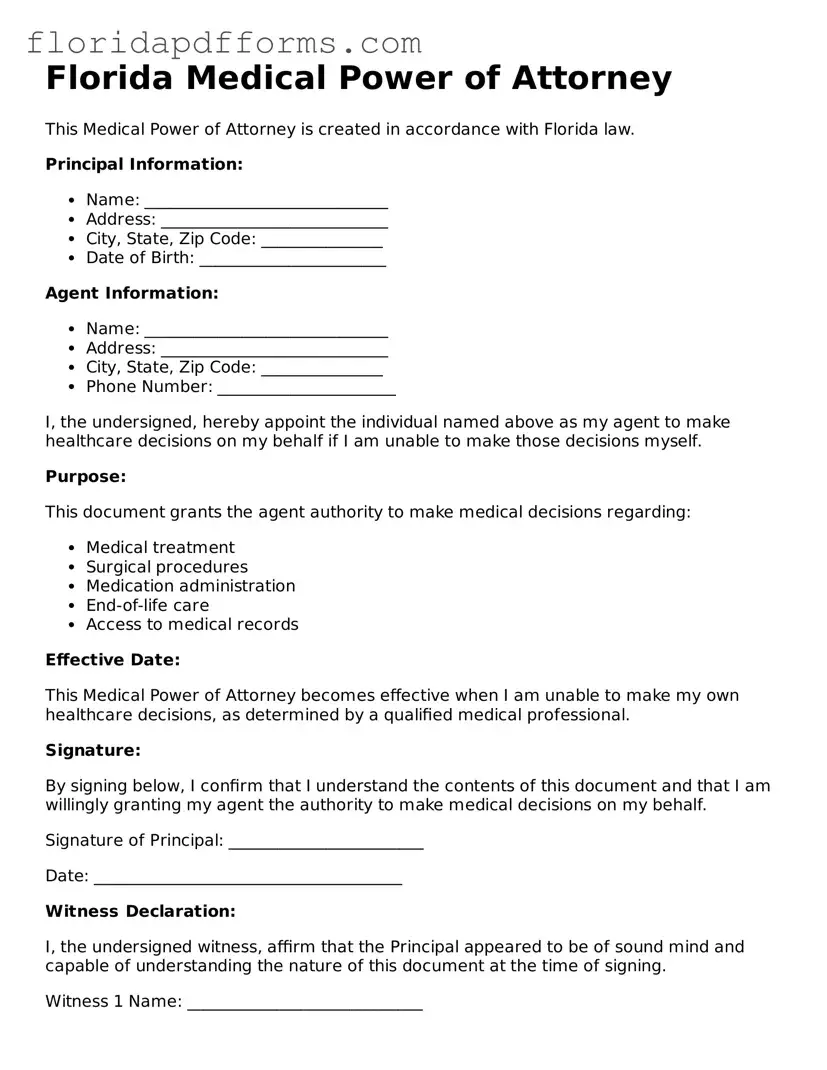Official Medical Power of Attorney Template for Florida
A Florida Medical Power of Attorney form is a legal document that allows an individual to designate another person to make healthcare decisions on their behalf if they become unable to do so. This form ensures that your medical preferences are respected, even when you cannot communicate them yourself. Understanding how to fill out this form is crucial for anyone looking to secure their healthcare choices.
Take control of your healthcare decisions today by filling out the Florida Medical Power of Attorney form. Click the button below to get started.
Modify Medical Power of Attorney Now

Official Medical Power of Attorney Template for Florida
Modify Medical Power of Attorney Now

Modify Medical Power of Attorney Now
or
⇓ Medical Power of Attorney File
Don’t stop halfway through your form
Finish your Medical Power of Attorney online with quick edits and instant download.